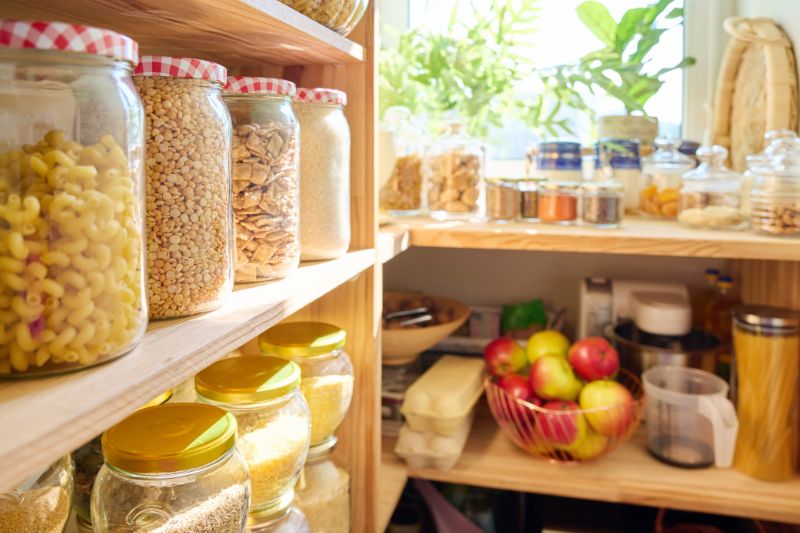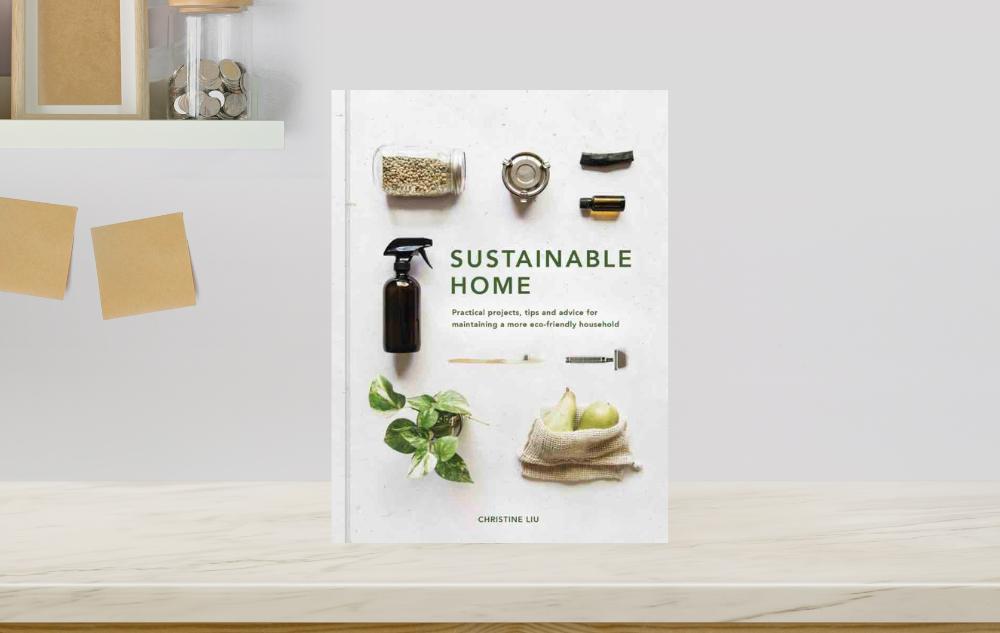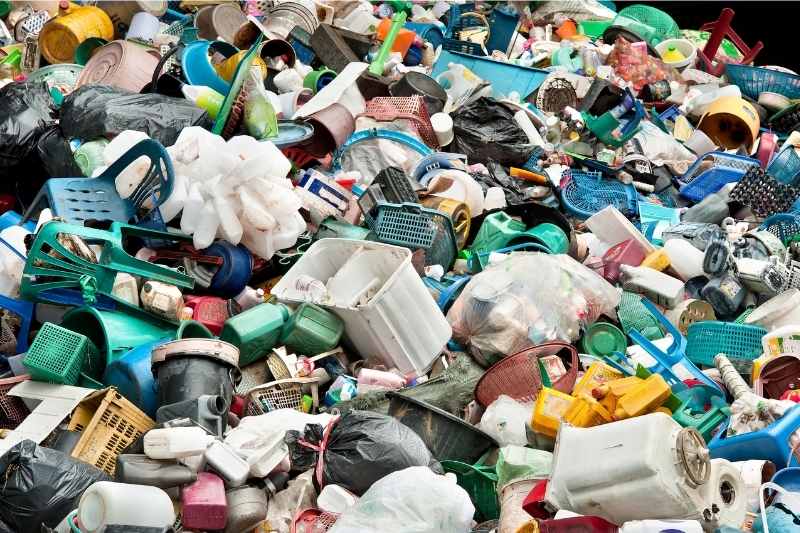Reduce Waste in Your Kitchen with These Eco-Friendly Alternatives
Small changes make a difference. Here are some simple tips to help you reduce waste in your kitchen and live more sustainably.
Do you find yourself pulling several paper towel sheets off the roll for every mess? Do you reach for single-use plastics like water bottles and plastic wrap often? Is your trash overflowing with smelly food scraps? Start living more sustainably with these eco-friendly alternatives.
Ditch Paper Towels for Good
Americans use 13 billion pounds of paper towels a year, nearly two rolls of paper towels a week, according to the United States Environmental Protection Agency. A whopping 110 million trees are felled annually to produce paper towels. Thankfully, there are many eco-friendly alternatives to help clean up messes in the kitchen and beyond.
Cloth towel rolls are a great way to reduce waste in your kitchen. Usually made of flannel or cotton, cloth towels are super easy to make yourself. But if sewing isn’t your thing, we recommend the ones pictured here from Cheeks Ahoy. You can also support small businesses and search for cloth towels on Etsy, which has a large variety of textiles and patterns to choose from!
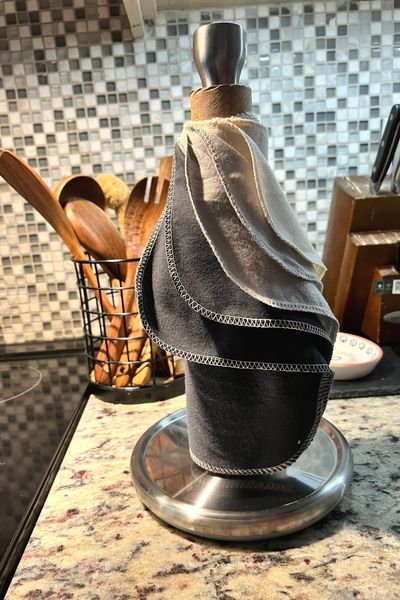
Swedish Dishcloths are super absorbent, compact to store, and easy to keep clean for everyday use. “Invented by a Swedish engineer in 1949, the rags are made of 100 percent naturally biodegradable cellulose or a combination of wood pulp and renewable cotton,” writer Ashlea Halpern noted. “They are superabsorbent, able to soak up 20 times their own weight in liquid. They are soft and pliable when wet but dry quickly in between uses.”
Cut your old bath towels and cotton t-shirts into squares for a cheap and simple solution to replace paper towels. Give your fabrics a second life with this completely cost-free solution you can implement immediately.
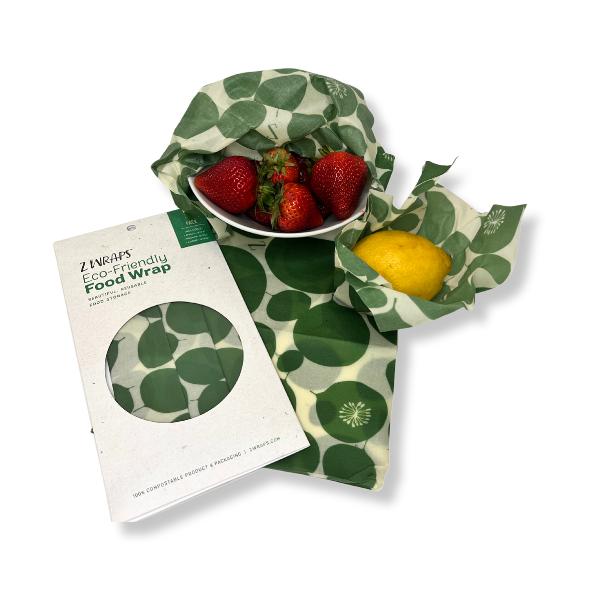
Say “Bye Bye” to Plastic Wrap
Sticky, flimsy plastic wrap cannot be recycled because it contains PVC. Once it reaches a landfill, it takes about 450 years to decompose. Reduce waste by trying beeswax wraps, which are fabric squares (often organic cotton) that are coated in naturally produced beeswax to create a seal and protect the food within. Rinse them off and use them over and over again!
Swap Out Plastic Grocery Store Bags
Make the switch to canvas totes or foldable tote bags and ditch flimsy grocery store bags for good! Stash one in your car, purse, or backpack so you always have one available for those spur-of-the-moment shopping trips.
Replace Plastic Water Bottles and Single-use Cutlery with Greener Options
Plastic water bottles and single-use cutlery items are notorious for overloading landfills and aren’t easily recycled. Instead, encourage your household to use a water filtration system and reusable water bottles for that same fresh taste that stays colder longer. To cut down on single-use cutlery, try substituting a sustainable set like our reusable utensil set and pouch. There are lots of different designs featured in our eco-store.

Replace Disposable Plastic K-Cups with Reusable Single-Cup Brew Pods
Disposable plastic k-cups may be convenient, but they’re terrible for the environment and your wallet. Single-use coffee pods account for 576,000 tons of waste globally. In addition, disposable pods are five times more expensive than drip coffee beans. Reduce waste in your kitchen by replacing single-use k-cups with washable, reusable k-cup pods for a greener, more sustainable cup of joe.
Give Composting a Try
Despite our efforts to combat the food waste problem, we inevitably end up with bits and pieces of food that get tossed into the trash can. Decomposing food waste in landfills produces methane gas, which is 28 times more potent than carbon dioxide in trapping heat. Before you toss food waste into the trash can, consider composting it.
Starting your composting journey may seem daunting, but there are a lot of resources out there to help. We recommend the book No-Waste Composting by Michelle Balz for a comprehensive guide to composting. Or try vermicomposting, a type of composting that uses earthworms to speed up the decomposition process.
If you have space, consider setting up a compost pit in your backyard. And if you live in an urban area, check out our helpful map to locate composting services in your area. Many states are investing in infrastructure to divert unnecessary food waste from landfills. Learn more about which states are leading the way.
Other Ways to Reduce Waste and Save Energy in Your Kitchen
- Upgrade Old Appliances with Energy-Saving Ones. If you’re in the market for a new kitchen appliance, look for the blue “Energy Star” designation for energy-efficient models. The United States Department of Energy and the Environmental Protection Agency have created a free online resource to make it easy to search for efficient models.
- Use Specialty Appliances. When possible, utilize specialty appliances like rice cookers, slow cookers, and electric kettles to cook your food. They are generally more efficient than ovens and stovetops.
- Prepare Meals More Efficiently. The Energy Saving Trust has a list of tips to help you maximize your energy savings while cooking. Covering your pots while you cook and avoiding opening the oven door can add up!
These tips are just a few simple ways your family can reduce waste and be more sustainable in the kitchen. Track and measure your efforts today with the One Planet Life app!

